Austria and Germany don't make it easy when the urge for unpaved paths and flying dirt arises. If you want to stay within the legal realm, you almost have to resort to dedicated off-road parks and training grounds. This is also the case for this test, which takes me to one of Germany's largest enduro parks in Leipzig.
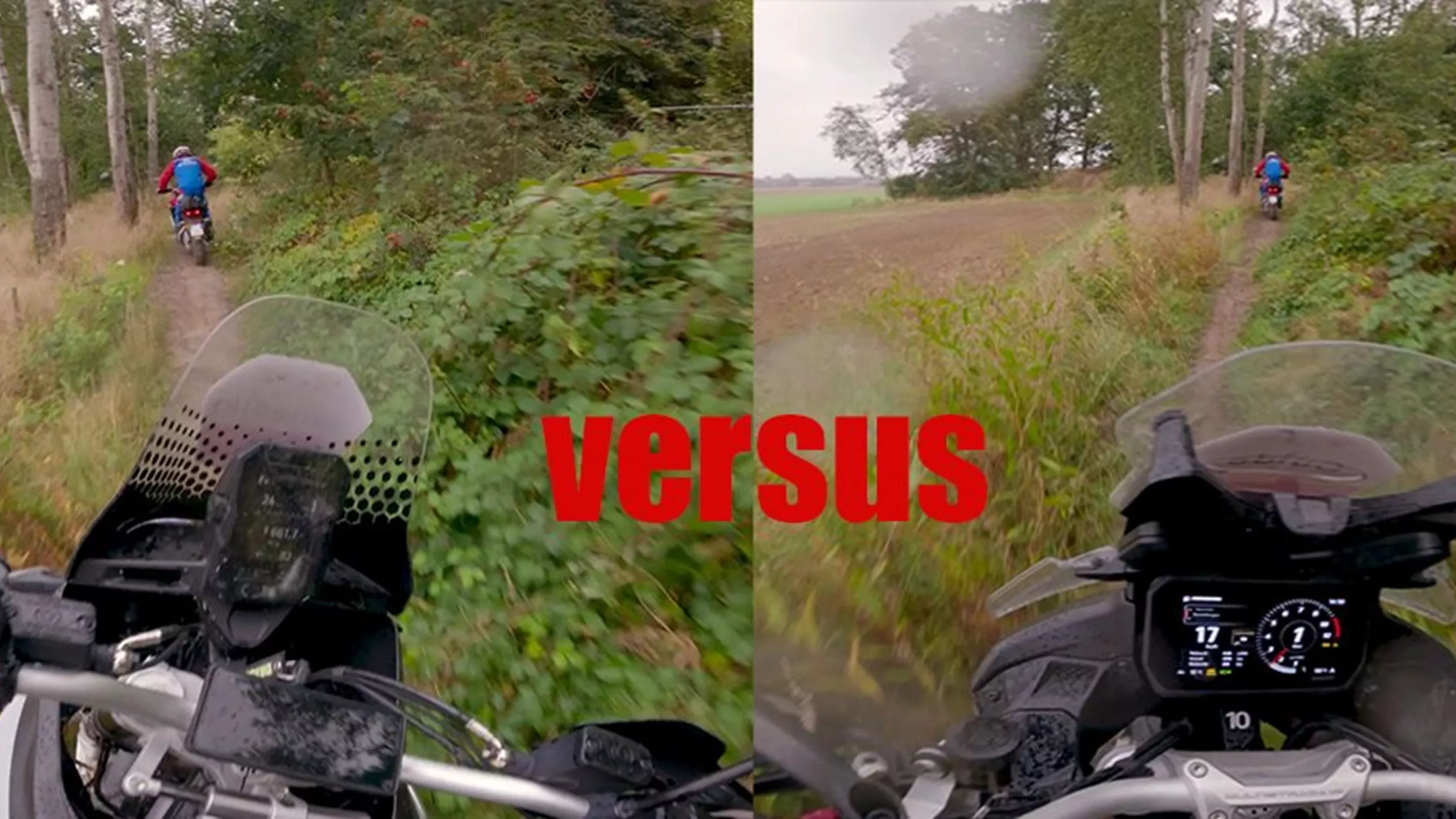
19-inch Big Adventure Bike vs. 21-inch Adventure Bike - Multi V4 vs. DesertX
Off-road Test: Too Heavy for the Rough Stuff for Regular Riders?
Always the same old story: In off-road riding, weight matters! But why? Where and how do those steel kilograms affect the bike's performance off-road? We tested this at the Ducati Offroad Experience.
&width=72&height=72&bgcolor=rgba_39_42_44_0&mode=crop)
Gregor
published on 11/15/2024
Ducati Offroad Experience - Offroad Training with the Latest Ducati Bikes
Near the small Saxon town of Meltewitz, about half an hour east of Leipzig, lies the 125-hectare Enduro Park, where the full professionals from the Enduro Action Team have been teaching various groups, from special forces to complete beginners, the art of off-road riding for 13 years. I am visiting for the Ducati Offroad Experience. Several times a year, Ducati Germany offers enthusiasts the opportunity to refine their off-road skills on the latest off-road capable Ducati models on the wide to single-track paths of the Meltewitz terrain. Available are the Multistrada V4 S, Multistrada V4 Rally, DesertX, and DesertX Rally, all equipped with Pirelli Scorpion Rally and Scorpion Rally STR tires.
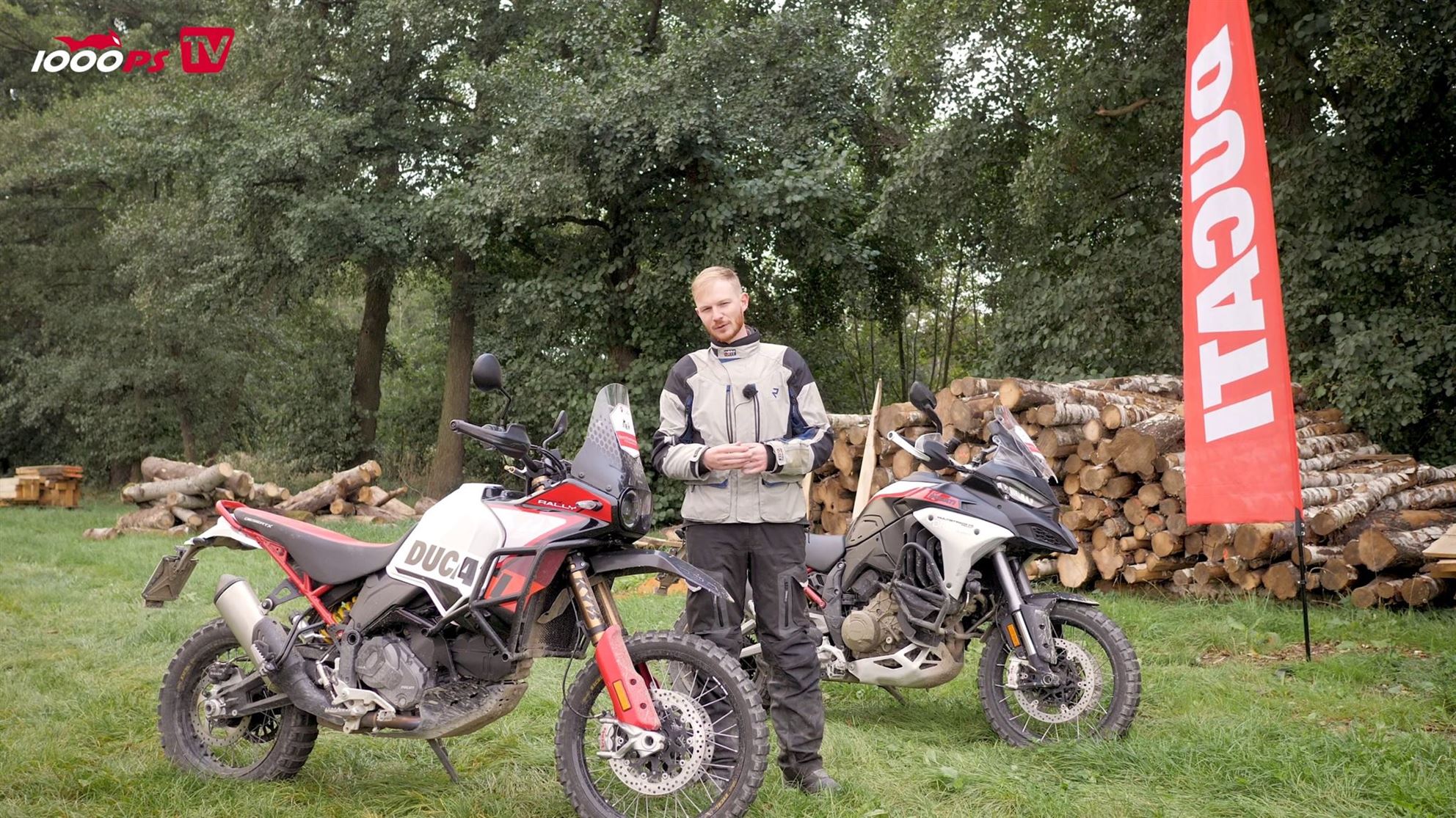
At the Ducati Offroad Experience, you can kick up some dust or refine your existing skills.
Central to this test is the question of how much the weight difference in a motorcycle truly matters for average riders. Accordingly, I focus on the lightest available machine, the 223 kg DesertX Rally, and Ducati's heavyweight, the 260 kg Multistrada V4 Rally. Experienced off-road enthusiasts might scoff here, claiming both are leaden. This might hold true from an enduro perspective, yet these two bikes represent two major motorcycle categories in the market: on one hand, the approximately 100 HP adventure bikes with a 21-inch front wheel, and on the other, the fully equipped big enduros with 19-inch front wheels like the GS and others. The Ducati Multistrada V4 Rally and DesertX Rally are also close to the average weight of these segments, which is why this test can be seen more as a concept comparison. For those seeking detailed test impressions of the bikes ridden, you can find the Ducati DesertX Rally Test and Multistrada V4 Rally Test here.
19-inch or 21-inch adventure bike on loose surfaces - Which is better on gravel roads?
Off-road is a very flexible term, and depending on the area of use, the differences in riding performance also change. After an initial riding technique session with Enduro Action Team founder Robert, we gradually move through various scenarios that regular riders can tackle with their adventure bike. It starts with the type of "off-road" that most hobby adventurers take on, namely wider, two-lane dirt roads and gravel paths.
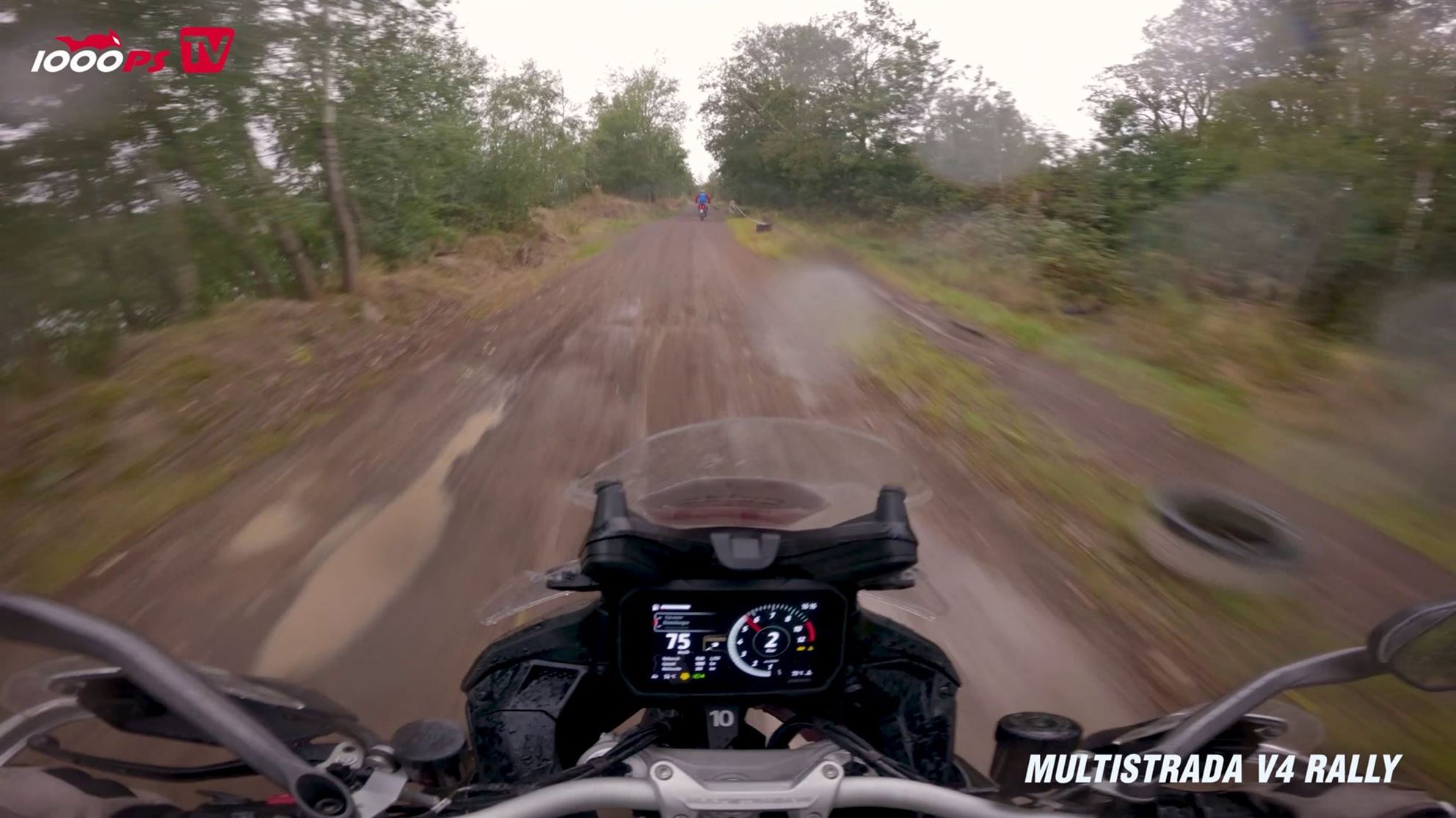
On wide roads, the two types don't give much away to each other. The faster and smoother the ride, the better the electronics and comfort can compensate for the high weight of the Multistrada V4 Rally.
This is also the area where the two adventure bike classes are closest. Whether it's around 100 or over 150 horsepower, as an average rider, you only manage to put a fraction of that power to the ground and need quite a bit of electronics to tame the powerful engines. This electronics is precisely what makes the big adventure bikes extremely capable on lighter unpaved paths, as the electronically controlled suspensions in this class can now offer a wide range between comfort and performance. With the Multistrada V4 Rally, you practically fly over the track, bumps are smoothly absorbed, and due to the higher riding speeds in open terrain, the higher mass becomes less significant. However, if the gravel road becomes more undulating or twisty, caution is advised. You first have to catch the momentum of the large machine or steer it around the corners. If you enter the curve a bit too fast or with suboptimal riding technique, an off-road excursion soon becomes a possibility. Shift the weight to the rear when braking, avoid braking at the limit, and bring your body forward and outward in the curve to give the front wheel maximum grip and steer the relieved rear with a burst of throttle. This works just as well on the 21-inch adventure bikes, but they have an advantage, especially on deeper, softer surfaces. The 19-inch front wheel is not only smaller but also wider, usually fitted with 110 or 120 tires. In sand or deep gravel, narrow wheels dig down to the firm layers faster, while the wider tire floats and offers less grip.
Technical off-road rides with 21 and 19-inch adventure bikes
We move to the other end of the off-road spectrum, to technical terrain. We're not talking about nearly vertical hill climbs, slippery creek beds, or meter-high rock steps, as only professionals and the brave with bikes weighing over 200 kg dare to venture into such serious terrain. In our realistic scenario, technical terrain includes narrow, single-track paths, sometimes deeply graveled, occasionally strewn with coarser stones, or dotted with higher bumps. The right riding technique here is: ride with foresight, if stability is needed, grip the bike with your knees and stay relaxed on the handlebars, allowing the front to move freely and find its way through the debris.
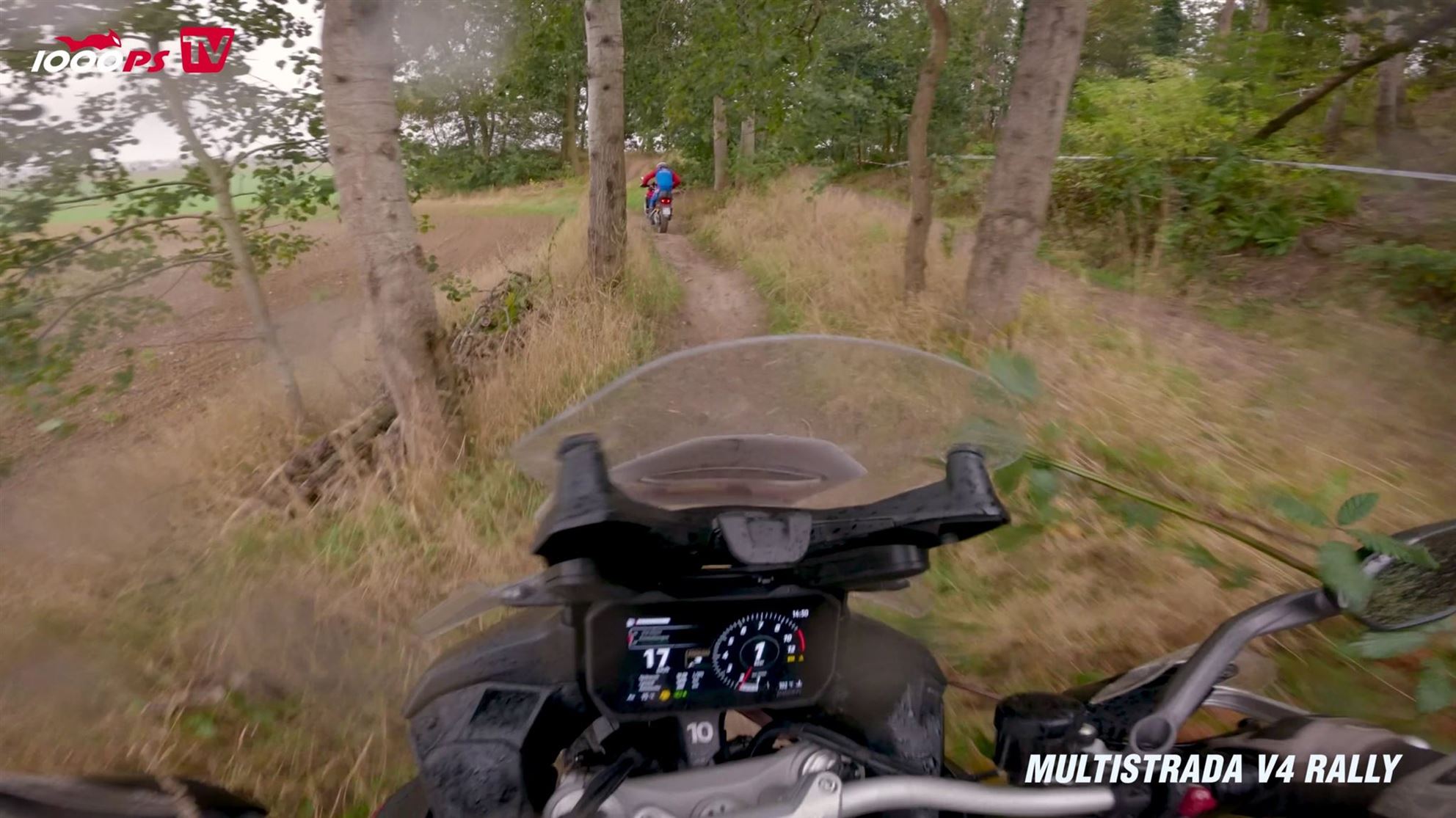
In tight, technical terrain, a big adventure bike demands more care, precision, and clean riding technique.
On the large Multistrada V4 Rally, the semi-active suspension stands out once again. You glide over bumps with buttery smoothness, while the continuous adjustment of damping and rebound mitigates the disadvantages of shorter suspension travel and the smaller front wheel. However, when the bumps get higher, the electronics can't hide it anymore, and the engine skid plate hits obstacles much earlier. The higher mass also shows less forgiveness for riding errors, especially with such a large 30-liter fuel tank as on the Multi V4 Rally. A wrong bump or a slightly clumsy choice of riding line can quickly lead to trouble, as course corrections are not as quick or require a lot of effort, which in turn demands precision. With longer suspension travel and less weight, the 21-inch adventure bike can be directed much more agilely and effortlessly with body weight over the pegs and handlebars on the trail. On tight, twisty routes, the narrow front wheel also offers a purely physical advantage: not only does it roll more easily over obstacles, but due to the rounder contour of the wheel, the motorcycle turns tighter at the same lean angle than a 19-inch wheel in the same situation.
Uphill Off-Road Sections - Comparing 21 and 19-Inch Adventure Bikes
In off-road conditions, especially on uphill sections, it's crucial to stay on the throttle and not lose momentum. The heavier the bike, the more challenging it is to regain momentum. This isn't just because more kilograms need to be set in motion again. The same principle that applies to the front wheel also applies to the rear wheel. On firm, grippy surfaces, this might not be an issue, but on rough gravel climbs, even the wider rear wheel struggles to find traction compared to the narrower 150 tires of 21-inch adventure bikes. However, the greater weight compensates by providing more pressure on the rear wheel, regaining some of the lost grip.
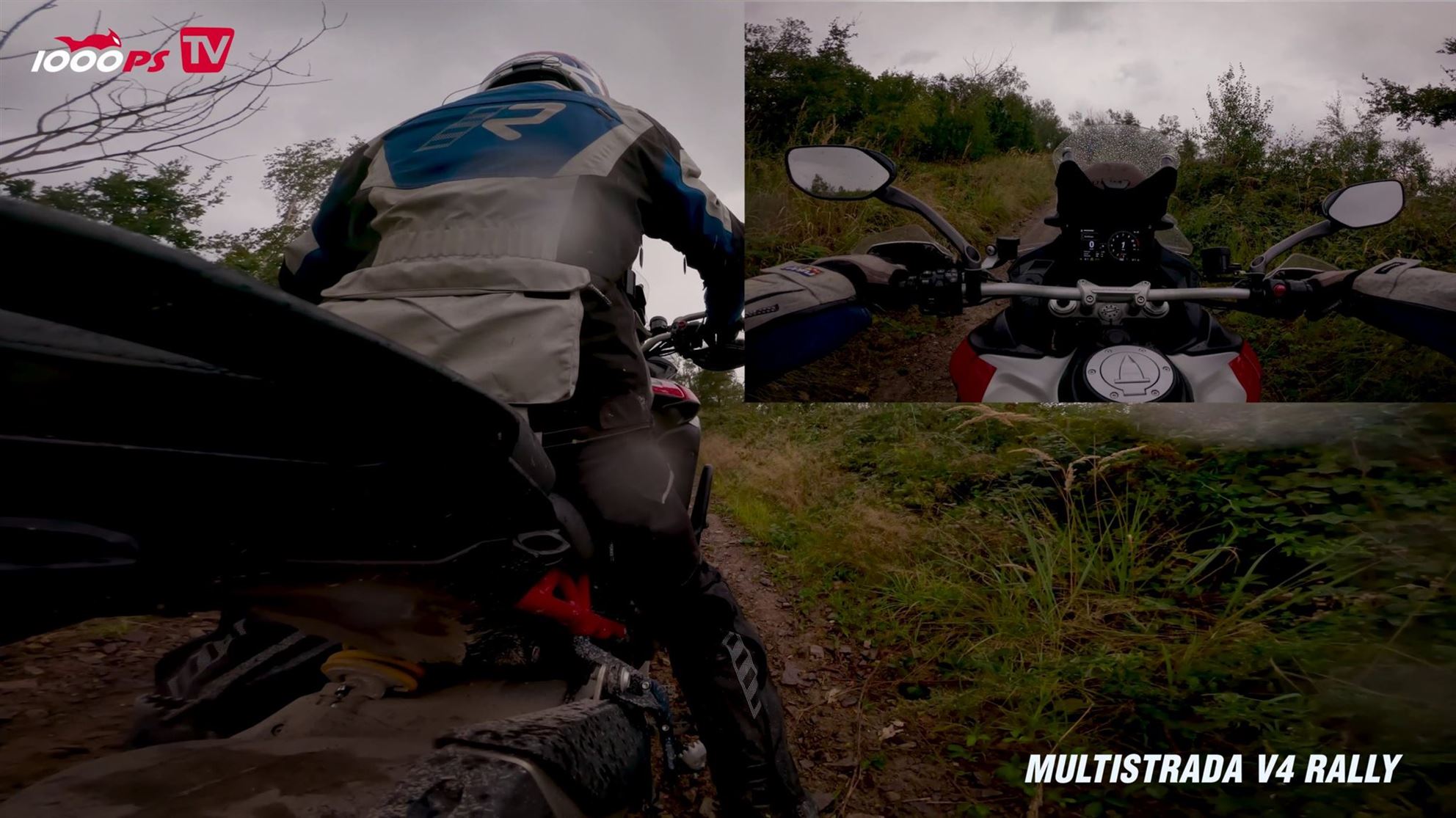
Getting stuck on a slope with a 250+ kg heavyweight is no fun. Especially on a track with loose, coarse gravel, it requires a decisive throttle hand and precise line choice.
Additionally, the ergonomics of the bike must provide enough space forward. Too upright, "touristic" standing positions have the disadvantage that it becomes difficult to balance the body far enough forward when going uphill, without clinging to the handlebars like a monkey. Such suboptimal vehicle geometries can be found in both the 21 and 19-inch segments, but the large enduros tend to have more comfortable ergonomics, and the particularly large, wide fuel tanks can also add to the challenge.
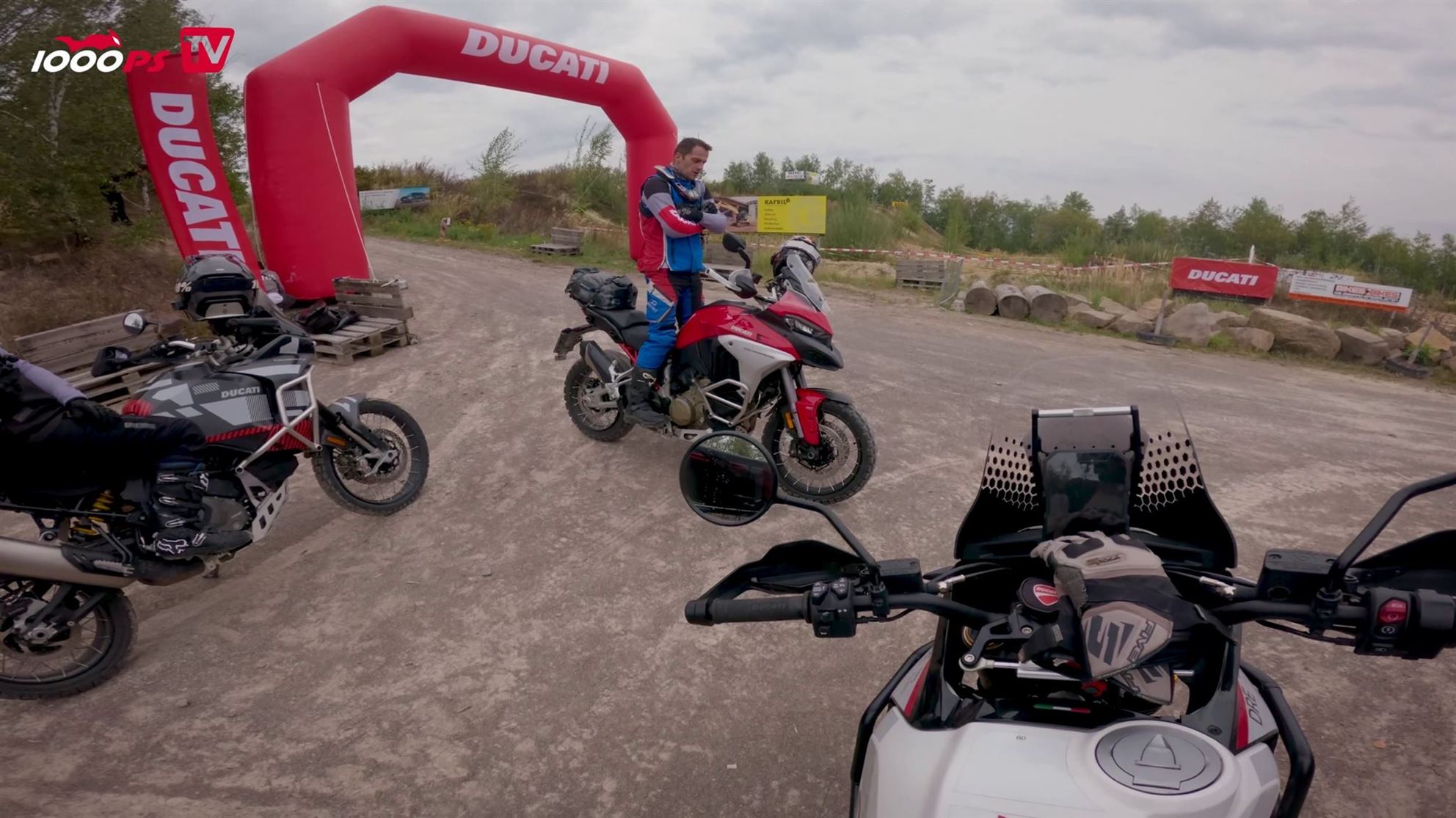
Enduro pro and Enduro Action Team founder Robert demonstrates the correct standing position on the bike.
Downhill Offroad Sections - 21 and 19-inch Adventure Bikes Compared
Downhill, the main goal is to descend with momentum yet maintain control. Momentum provides stability, but especially on heavier machines, one must not overdo it. Almost every descent is soon followed by a curve or hairpin where you need to brake. Due to the high mass, the aforementioned wider wheels, and often more street-oriented, powerful yet sharp brakes, Big-Enduros require a particularly delicate touch on the brake lever. However, this only partially applies to the most modern adventure bikes, which now almost universally come equipped with advanced electronics, including the "Jesus take the wheel" off-road ABS mode.
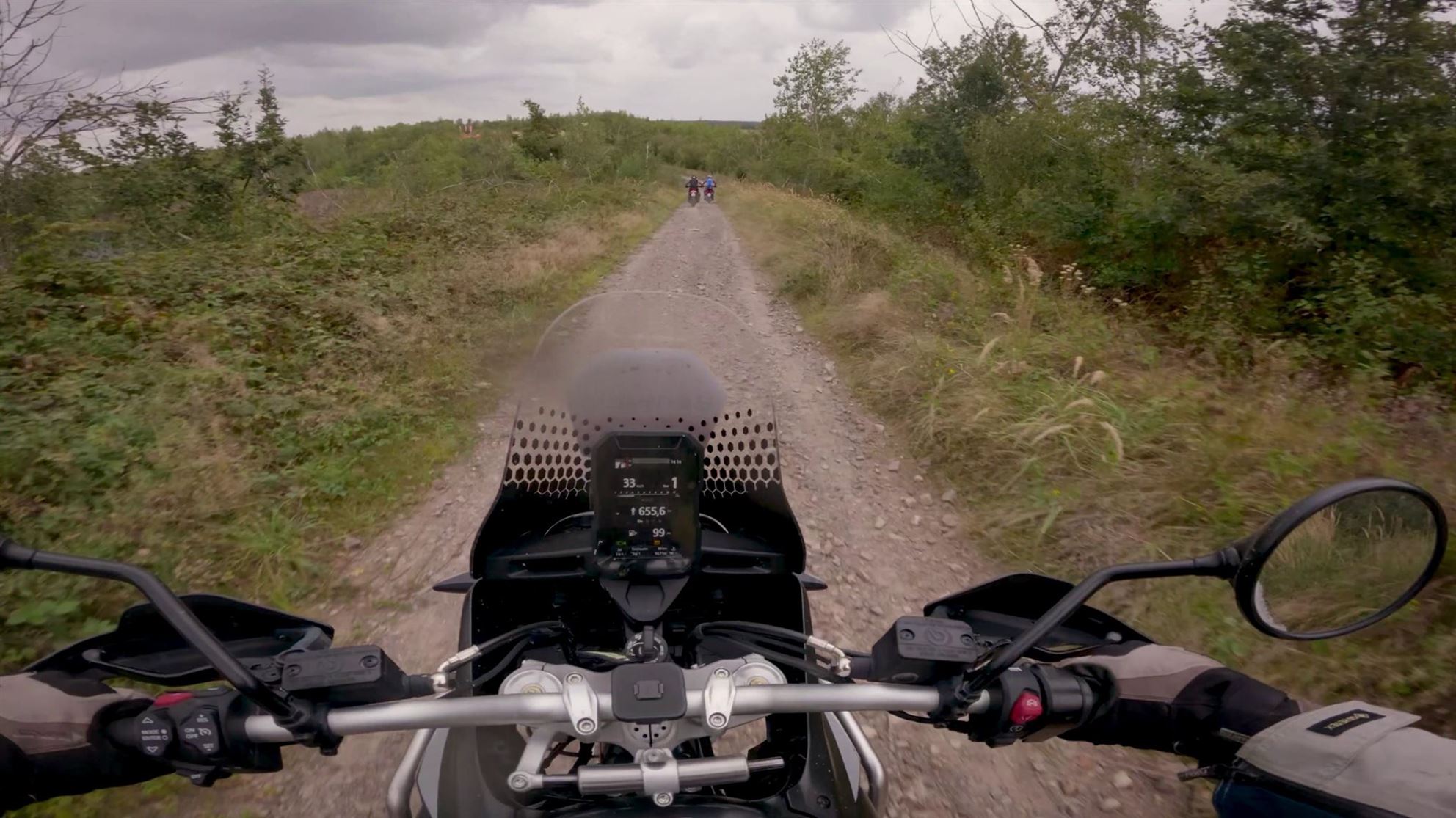
Going downhill, the momentum is easier to control on lighter bikes, the narrow front wheel finds grip more easily, which facilitates brake modulation.
Even downhill, ergonomics play a crucial role, as in downhill sections, the weight should shift towards the rear for maximum braking performance and optimal weight distribution. In the 21-inch adventure bike segment, seats are often simpler, sometimes even single-piece and flat, which is better for off-road. Looking at the exclusively two-part, stepped saddles of the 19-inch adventure bikes, one can already see from the outside that there is less space available. On the road, luxury tourers equipped with heated seats offer extreme comfort, but downhill, highly padded pillion seats, protruding pillion pegs, or wide rear sections can make descent more difficult.
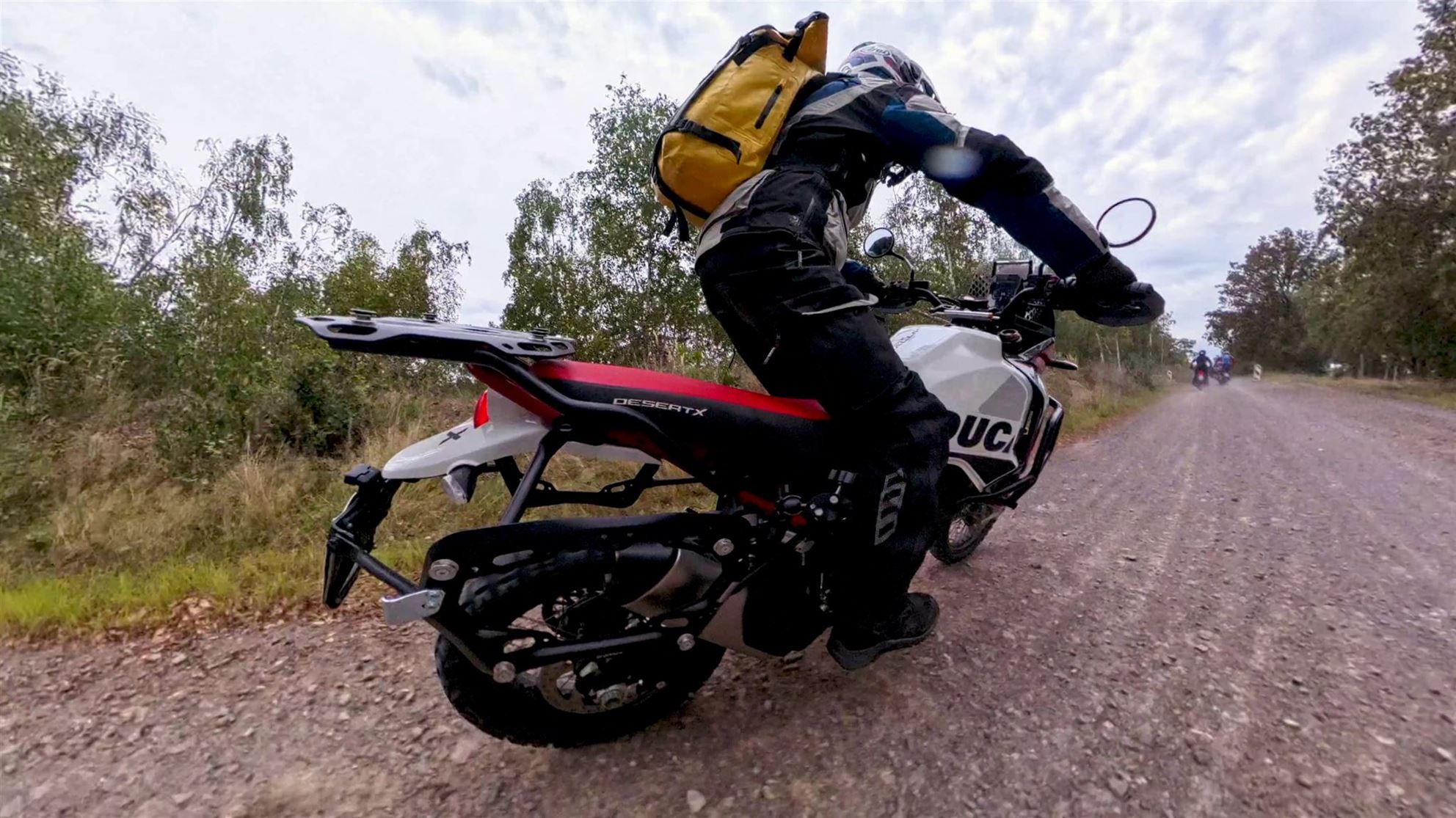
On less lavishly equipped adventure bikes, the rear sections often appear more understated than on the luxury-oriented big adventure bikes.
Conclusion on the Offroad Comparison of 21 and 19-inch Adventure Bikes
Between an adventure bike with a 21-inch front wheel and a big enduro with a 19-inch front, there are a few basic differences in loose terrain. For instance, the higher mass tends to push you outward in corners, gaining momentum on a slope becomes more challenging, or lifting the bike after laying it down is even harder. At the same time, the different suspension travels, the nowadays common and excellently functioning semi-active suspensions for light to medium off-road use, and the various tire widths have a significant impact on riding dynamics in rough conditions. Those who want to take an adventure bike into the wild should consider how serious the off-road adventure will be. On wide gravel roads, forest paths, and unpaved Alpine passes, you sacrifice little off-road performance with the big machines but gain comfort on the asphalt. However, the rougher, deeper, slipperier, bumpier, steeper, or tighter it gets, the more important a low weight and suitable ergonomics become to maneuver the bike over obstacles.
19-inch Big Adventure Bike vs. 21-inch Adventure Bike - Multi V4 vs. DesertX Images
Source: 1000PS






































